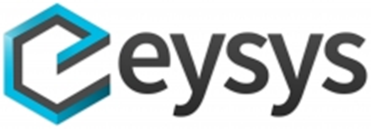Conference Aim and Scope
The way in which IT resources and services are being provisioned is currently in flux. Advances in distributed systems technology have allowed for the provisioning of services on an unprecedented scale and with increasing flexibility. At the same time, business and academia have started to embrace a model wherein third-party services that can be acquired with minimal service provider interaction, replace or complement those that are managed internally. Organizations have only started to grasp the economic implications of this evolution.
As a global market for infrastructure, platform and software services emerges, the need to understand and deal with these implications is quickly growing. In addition, a multitude of new challenges arise. These are inherently multidisciplinary and relate to aspects such as the operation and structure of the service market, the alignment of cost, revenue and quality-related objectives when taking on a service consumer or provider role, and the creation of innovative business models and value chains. These challenges emerge in other service domains as well, for example in the coordinated operation of the next generation electricity grids that are characterized by distributed generation facilities and new consumption patterns.
GECON invites researchers and practitioners from academia and industry to present and discuss economics-related issues and solutions associated with these developments and challenges. Contributed work can comprise extensions to existing technologies, successful deployments of technologies, economic analysis, and theoretical concepts. The purpose of this event is to gather original work and build a strong multidisciplinary community in this increasingly important area of a future information economy.
The GECON 2014 call for papers can be found here.
Keynotes
Economics, Security & Innovation
 Massimo Felici
Massimo Felici
Security and Cloud Lab, Hewlett-Packard Laboratories
Abstract: This talk will take into account an economic perspective of security and innovation. In particular, it will discuss aspects of economics that may be relevant in order to assess and deploy security technologies. At the micro level of analysis, as an example, this talk will highlight discussions on the economics of security in the cloud. Do we really understand the economics of security in the cloud? Are there economic models that capture operational security in the cloud? Early work at HP Labs on trust economics underpins a systematic approach to information security decision-making and risk management. The results on trust economics highlight how economics may drive operational security and the deployment of security technologies. At the macro level of analysis, drawn from ongoing work within the Security and Trust Coordination and Enhanced Collaboration, this talk will link economics to innovation in cyber security and privacy. Despite the R&D investments in cyber security and privacy, the general perception is that security and privacy technologies are deployed ineffectively. This talk will also present an integrated framework taking into account market perspectives that may support identifying suitable R&D strategies and assessing their impact.
Machine Learning and e-Commerce: past, present and future
 Humphrey Sheil
Humphrey Sheil
Eysys, UK
Abstract: Over a decade ago, Amazon deployed one of the most meaningful applications of machine learning to the problem domain of e-Commerce: personalised product recommendations based first on item and then user similarity scoring. Since then, many novel machine learning techniques have been applied to e-Commerce, and as an application domain, e-Commerce continues to sit squarely in the focus of multiple research institutions and companies world-wide. In this session, we will consider the past and present of the intersection of e-Commerce and machine learning in order to predict the future direction of this space, in particular the projected demands on grid computing for large-scale model training and execution.
Proceedings and Previous Editions
The 11th edition of GECON follows the very successful past GECON conferences , where high-quality technical papers have been presented.
As in the previous conferences,
- Accepted papers will be published in the proceedings that are published by Springer LNCS
- Extended versions of up to 5 of accepted GECON papers will be invited to get published by Elsevier in a special issue on the Economics of Computing Systems of the Journal of Future Generation Computer Systems.
- This year, for papers targeting pure business and economic aspects within the conference, a special issue of the Springer Electronic Markets journal is intended for up-to-5 papers.
Visit the submission page for more information on the publication and reviewing process.
Venue
The GECON 2014 Conference will take place in Cardiff, UK.












